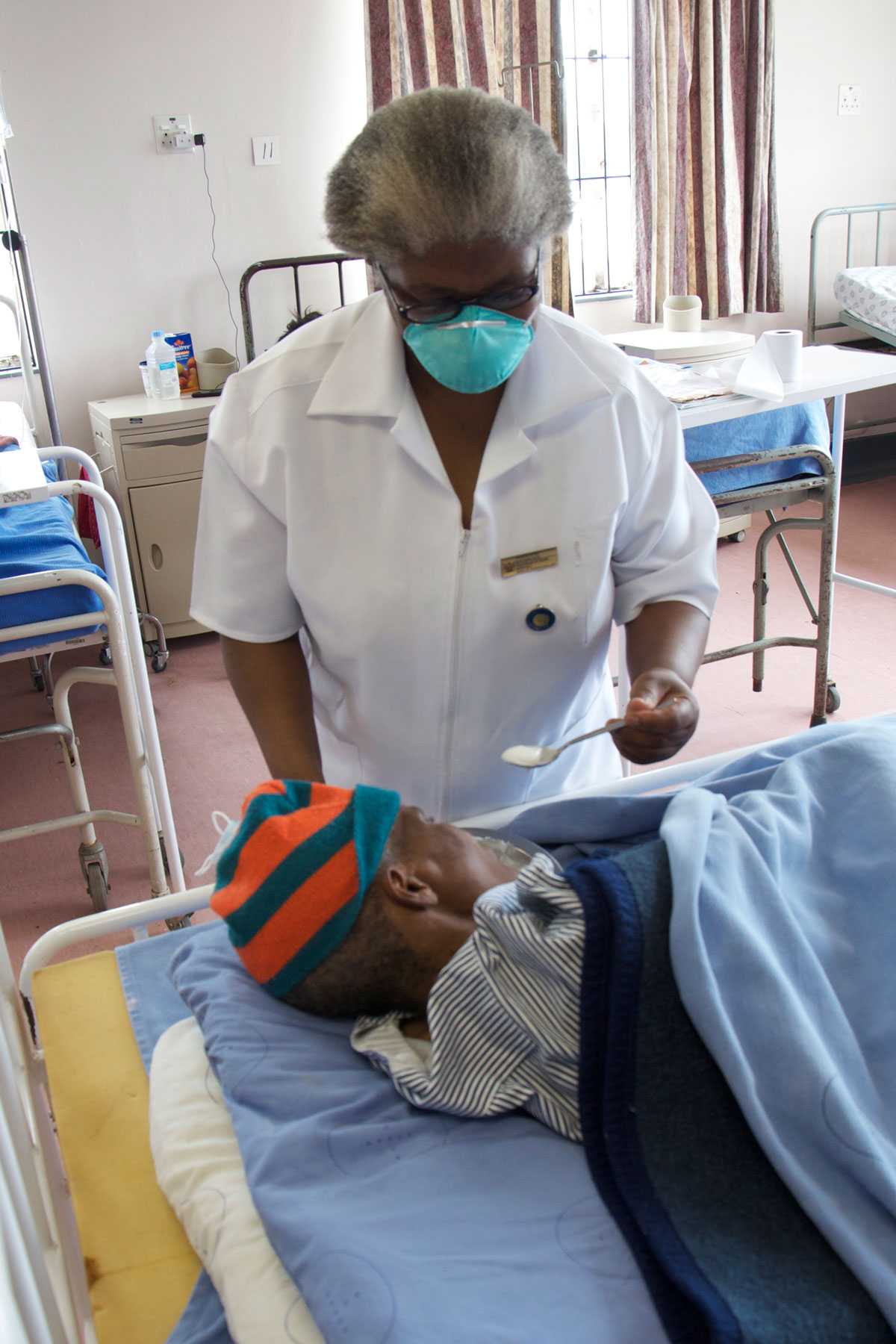CDC's HIV/AIDS Care and Treatment Programs in South Africa:
HIV Care and Support
Helping People Live with HIV

When people learn they are infected with HIV they often experience overwhelming emotions ranging from anger to denial to despair. It is critical that people living with HIV receive vital care and support services to improve their quality of life. In South Africa, that number is estimated to be 5.7 million people.
The U.S. Centers for Disease Control and Prevention in South Africa (CDC South Africa), through its Global AIDS Program (GAP), works hand-in-hand with the National Department of Health (NDOH) to strengthen quality HIV and AIDS palliative care service delivery and implement standards of care. CDC South Africa and its partners support services to 2 million people including orphans and vulnerable children (OVC).
From Diagnosis to End of Life
Care and support begins once a person s HIV infection has been diagnosed and extends though the end of life. The NDOH, provincial departments of health, and other stakeholders work closely together to provide a holistic approach to palliative care by incorporating clinical, psychological, social, and preventive care services. Health-care providers provide comprehensive services in either home-based or clinical settings. Services include:
- Prophylaxis drugs (cotrimoxazole) to prevent opportunistic infections
- TB screening
- Screening for sexually transmitted infections (STIs)
- Prevention with positives to reduce HIV transmission
- Family support
- Nutritional support
CDC South Africa developed a comprehensive HIV care package in January 2009 to educate and provide support services to people living with HIV. The package covers topics such as acceptance of status, disclosure, partner counseling and testing, psychosocial support, nutrition counseling, treatment adherence counseling, and outreach services. A system has been developed to follow up with clients who have defaulted from the program. The community is engaged by offering the HIV package at support groups. People living with HIV serve as facilitators for the support groups, which provide linkages between the health facility and the community to ensure a continuum of care. Increased awareness at the community level has led to reductions in stigma. In 2009, CDC South Africa will assess the effectiveness of the HIV care package.
Comprehensive Program Delivers Care and Support
CDC South Africa works closely with the NDOH to implement comprehensive care and support programs by:
- Tracking services by area to assess geographic distribution
- Supporting a family centered approach that focuses on children and identifies other family members needing care and support services
- Examining care and support to families
- Introducing safe water and sanitation measures
- Placing more emphasis on prevention with positive interventions
- Linking social and clinical aspects of care and support
- Increasing the number of trained formal and informal healthcare providers
- Establishing referral systems between community home-based caregivers and facility services
- Developing quality assurance tools
- Page last reviewed: December 5, 2011
- Page last updated: December 5, 2011
- Content source:
Global Health
Notice: Linking to a non-federal site does not constitute an endorsement by HHS, CDC or any of its employees of the sponsors or the information and products presented on the site.


 ShareCompartir
ShareCompartir